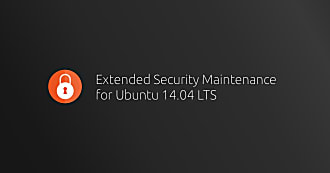Canonical
on 30 October 2013
Hit the ground running with Ubuntu OpenStack training
Canonical was the first company to commercially distribute and support OpenStack, under the Ubuntu Cloud Infrastructure brand. Ubuntu is also the reference operating system for the project. Since 2011, we have included the latest version of OpenStack in every Ubuntu release, and made every OpenStack release available for the most recent long-term support Ubuntu release (LTS) through our unique Cloud Archive. All versions of Ubuntu are certified and supported.
We’ve deployed OpenStack in a multitude of sites, from relatively small Jumpstart* clouds to huge infrastructure used by telcos to deliver mission critical services to their enterprise customers.
In addition to working with the community to improve OpenStack, we’ve developed two tools: MAAS for bare-metal provisioning, and Juju for service deployment and orchestration, to complement OpenStack and make it even more powerful and scalable.
A natural consequence of all the work we’ve done is that our customers wanted us to share our knowledge and expertise with them. This is how the Ubuntu OpenStack Training Programme (UTP) was born. We’ve listened to our customers carefully and prepared a modular course, encompassing everything from Ubuntu Server to Ubuntu OpenStack, MAAS and Juju.
In its standard form, the course is two weeks long, although there is some flexibility to create longer or shorter versions based on customer needs. The first week is all about Ubuntu Server, with special attention to running Ubuntu Server in the cloud. The second week is about OpenStack and its components, from deployment to troubleshooting. MAAS and Juju are covered in both weeks with respective emphasis on standalone use or integration with OpenStack.
Research Manager Mikael Ydholm leads a team that visits thousands of homes annually … and compiles reports from trend spotters and experts that look as far as a decade into the future.
The core technologies involved in this course are in constant evolution and so is the training itself. Think of the course as a journey of discovery, facilitated by a trainer who has first-hand commercial experience with all the topics presented. The course is designed to be highly interactive, constantly alternating theory with hands-on exercises, troubleshooting sessions and discussions facilitated by the trainer.
We realise that not all customers interested in the course have the necessary infrastructure to give OpenStack instances to each student. For this reason, we’ve prepared a world-class lab infrastructure to deliver training globally, think of cloud training in the cloud!



